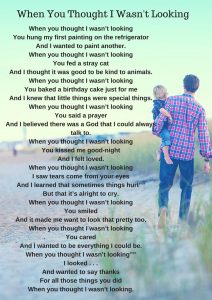This is the first morning I can sit on my deck and feel as though I have no particular education-related tasks that have to get done . . . 19 days after the last day of school. I took an intensive summer class at the University of Regina for the first two weeks of summer, and just completed it yesterday.

We haven’t had rain for so long – it’s so dry!
This post could go a couple of ways. I could say, “Look at how dedicated I am as a teacher, pursuing professional development opportunities during my vacation time!” Or, I could talk about how meaningful I find the classes I’ve taken in the past year, and how they’ve made me a better teacher and a role model for my students. I’m going to go with the latter.
I only have one more class to take to obtain the Special Education Educator Qualification I’m seeking. That makes me happy for the accomplishment, but sad that it’ll be over. I’ve found the classes both exhilarating and nourishing. They’ve challenged me to look at what I do through the lens of research and best practices, and I’ve had the opportunity to meet and collaborate with interesting people from other schools and school divisions, as well as pre-service teachers. Each time I leave a class, I walk away with greater confidence in my ideas and abilities. Each one of them has made me feel more powerful as a person and an educator.
How do I transfer those intense feelings about learning to my students? One of the easiest ways I found this past year was simply talking about it. The grade 7/8s in particular were always somewhat surprised, but also fascinated, that I was still learning (I know, shocking at my age!!). They’d ask me how things were going, what kinds of questions I was asking and finding answers to, and we had many discussions about what success looks like. I hope that I provided good modeling for them – that we learn all our lives, that we are always striving to be better than we were before.
In the 1970s and 1980s, Albert Bandura developed his Social Learning Theory. At its heart, it states that human behaviour is primarily learned by observing and modelling others. My students need to see me as a model of what learning looks like, whether it’s talking about the books I read, the classes I take, or looking for answers to questions that come up in class. As always, it’s what I do and the way I react to situations that have a great influence on the young people I work with.
It reminds me of the poem by Mary Rita Schilke Korzan, called “When You Thought I Wasn’t Looking”:

